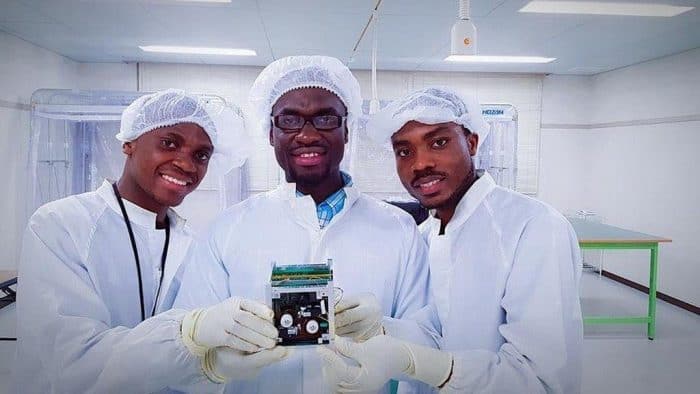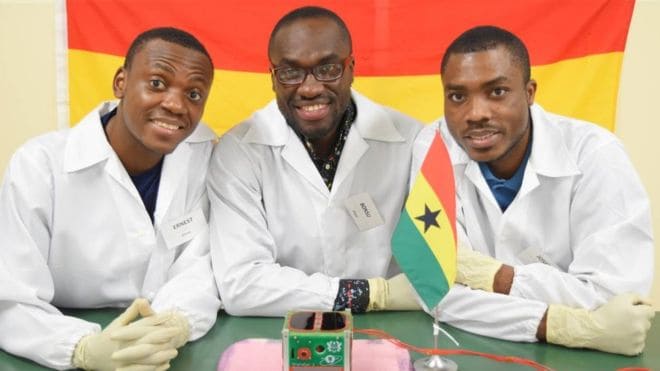When it was reported on July 7th, 2017 that Ghana had successfully launched its first satellite into orbit, there was wild celebration among the more than 400 watchers present at the All Nations University College, Koforidua, Ghana, where three enterprising students had built the satellite over two years and at the cost of more than $50,000. Media sources celebrated the groundbreaking achievement as the result of collaboration between the Japanese Aerospace Exploration Agency which provided support, the US’ National Aeronautics and Space Administration (NASA) which helped to launch it into the International Space Station, and Elon Musk’s SpaceX team whose flight 11 carried the satellite. Few news sources bothered to mention the names of the students responsible for this daring project, and fewer highlighted the underlying stories behind this success.
Take a bow, Benjamin Bonsu, Joseph Quansah and Ernest Teye Matey. Future Africa celebrates you for daring to dream and to create a reality that puts your country’s flag, its national anthem and other patriotic song among the stars where they truly belong. If GhanaSat-1 succeeds in its mission of monitoring the country’s coastline for mapping purposes, it will be because three university students took the road less travelled and did what they could for their country. It will also be because Rev. Dr. Samuel Donkor chose to build a private university only 15 years ago in 2002 with just 37 students.

Benjamin Bonsu, Joseph Quansah and Ernest Teye Matey. Source: www.africanews.com
Ghana’s first satellite was not launched into space courtesy of a government programme; it was not the result of a strategic move by the country’s Ministry of Environment, Science, Technology and Innovation; it was not the outcome of research through a public-funded university, it was the outcome of the vision of a private citizen. When Dr. Donkor sought permission to build the university in 1988, he might not have imagined that it will take 14 years before the university would open its doors, but that patience and perseverance has put Ghana into orbit today. Future Africa also celebrates Dr. Richard Damoah, whose role as Project Coordinator inspired the next generation of Ghanaian innovators to achieve such a remarkable feat.
Achievements like this help to reinforce the call for active collaboration between citizens, governments, educational institutions and the civil sector to build desirable and sustainable societies in Africa. We believe that our countries are much better off when each citizen is empowered to make their unique contributions to solve our common challenges. Ghana celebrates today; where does the next big African innovation lie?
Future Africa was founded to redesign political, economic and social discourse in Africa by bridging the gap between public policy leaders and proven approaches to address current and future development needs on the continent. Learn more at https://futureafrica.net/why-we-exist/.




